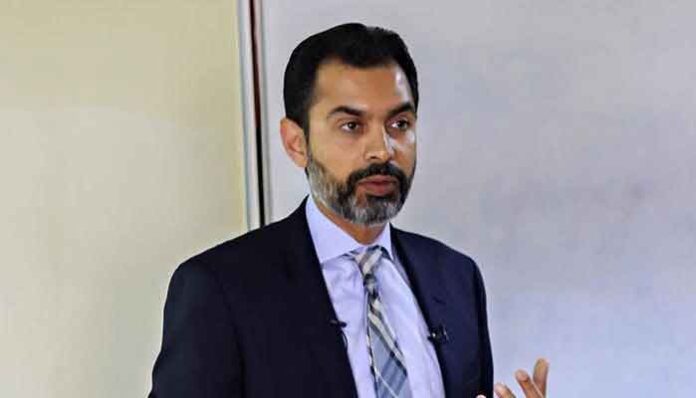- ‘Volatility and uncertainty in the exchange market has subsided and the confidence is slowly improving’
- ‘Inflationary pressures are expected to recede in the second half of FY20’
KARACHI: A delegation of the International Monetary Fund (IMF), led by it’s Middle East and Central Asia Director Jihad Azour, called on State Bank of Pakistan Governor Dr Reza Baqir on Thursday in Karachi.
Azour was accompanied by IMF Mission Chief to Pakistan Ernesto Ramirez Rigo, Resident Representative of IMF for Pakistan Teresa Daban Sanchez and Special Assistant to the Director of the IMF’s Communications Department Olga Stankova.
The delegation also met with the senior management of the SBP.
Speaking on the occasion, the SBP governor stated that Pakistan has embarked on its “home-grown economic reform programme”, adding that he looked forward to furthering the relationship with IMF and other stakeholders in the international financial community to support the reform programme.
He observed that transition to a market-based exchange rate system, accumulation of foreign exchange reserves, and curtailment of inflation were among the key elements of the SBP’s reform programme to restore financial stability and to lay the foundations for sustainable and shared growth.
“The initial results from the reform programme have been encouraging. The earlier volatility in the exchange market and associated uncertainty has subsided and the confidence is slowly improving,” he stated. “Inflation had risen due to the economic imbalances accumulated from previous years but inflationary pressures are expected to recede in the second half of the current fiscal year.’
The governor emphasised that these were the early stages of the reform process and it was essential to sustain the reform momentum and to keep the policies focused on stability and sustainability.
The IMF director shared with the SBP governor his views on how central banks in the region were responding to the challenges being faced by them, particularly with regard to capital flows, the role of technology, and the role of central banks in economic management.
























